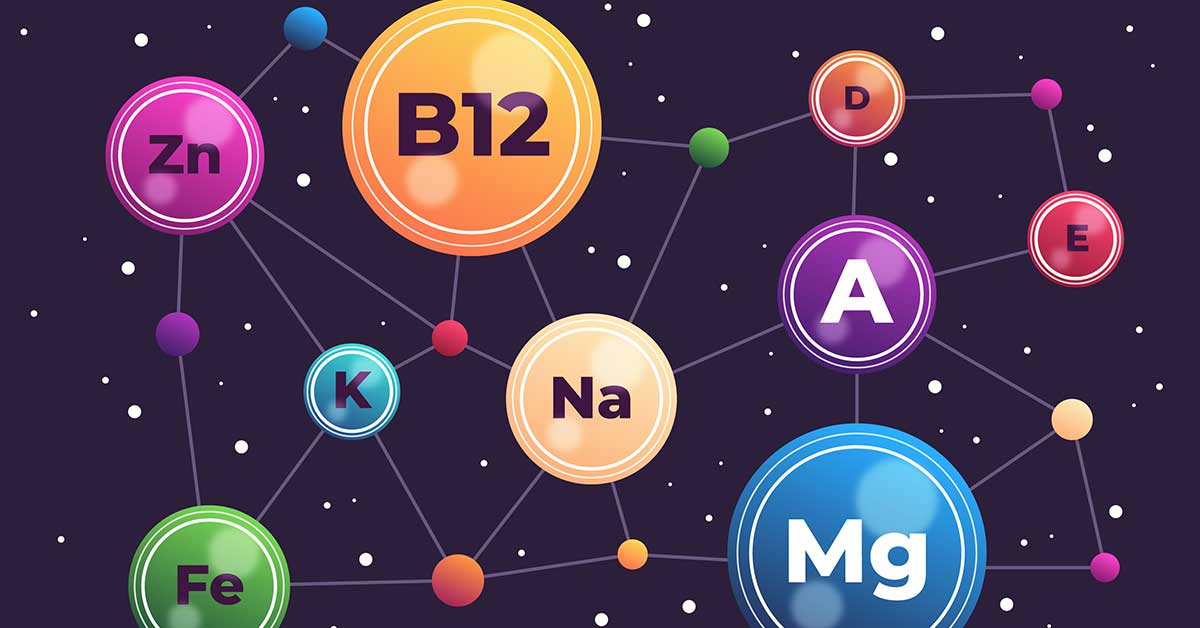How much vitamin B12 do you consume? To maintain your health, you must ensure a regular intake of vitamin B12. This is because your body benefits greatly from vitamin B12. For instance, it aids in producing red blood cells and DNA.
If you have a B12 deficiency, you should check your folate levels. If your folate levels are low, it indicates B12 deficiency. You can test your folate levels with a urine test kit. Once you find out how much folate you have in your system, you must ensure you take in enough B12.
Vitamin B12 Deficiency: What it Looks Like
Most people consume adequate B12 vitamins. However, if you are unsure about your vitamin B12 levels, you must consult a doctor about whether you should undergo a blood test.
It may become harder to gather this vitamin as we age. Additionally, it may occur if you regularly consume alcohol or have surgery for weight loss or another procedure involving removing a portion of your stomach. Further, the following conditions may increase your risk of vitamin B12 deficiency:
a. It becomes challenging for the body to digest vitamin B12 if you have pernicious anemia.
b. Atrophic gastritis causes a thinner stomach lining.
c. Alcohol consumption in excess can prevent you from getting adequate calories and make it more difficult for your body to take in nutrients. Glossitis, or an inflamed, swollen tongue, is one sign that you may not be getting enough vitamin B12.
d.
Immune system illnesses such as lupus or Graves disease. Or small intestinal disorders such as Crohn's disease, celiac disease, bacterial overgrowth, or a parasite.
e. Taking medications that prevent vitamin B12 from being absorbed? Some of the medications mentioned here include H2 Blockers like famotidine (Pepcid AC), cimetidine (Tagamet), certain diabetes medications like proton pump inhibitors (PPIs) and metformin, and like lansoprazole (Prevacid), esomeprazole (Nexium), pantoprazole (Protonix), rabeprazole (Aciphex) (Glucophage) and omeprazole (Prilosec OTC).
New Mom or Pregnant?
Are you a vegan or vegetarian pregnant woman who wants to only breastfeed your child? You should speak with your doctor before conceiving so that you can develop a strategy for how you will have enough B12 Vitamin to keep your unborn child healthy. If your baby doesn't get enough vitamin B12, he/she could have developmental delays and not grow as it should.
Vitamin B12 Deficiency Symptoms
Watch out for the warning signs and symptoms listed below that point to a potential vitamin B12 deficiency.
1. Weakness and Exhaustion
Lack of vitamin B12 might result in a drop in the body's supply of healthy RBCs. This is because the tissues and cells are deprived of the oxygen necessary for energy metabolism when there are not enough healthy RBCs. Therefore, a lack of vitamin B12 can cause the body to experience low energy levels, which show weakness and exhaustion.
2. Tingling in the Hands and Feet
A vitamin B12 deficiency harms the myelin coating that covers and shields nerves. Without this defense, nerves stop working correctly, and disorders like
peripheral neuropathy develop, which can make your hands and feet tingle and feel numb.
3. Breathing Issues
Low vitamin B12 levels slow down the formation of healthy RBCs. As a result, even after mild physical activity, you may experience shortness of breath due to the reduced oxygen transfer to the cells caused by a shortage of functioning RBCs.
4. Light Skin
RBCs that have not fully grown are unable to enter the bloodstream. As a result, the skin may seem pale because of a lack of good RBC circulation beneath the surface.
5. Issues With Mood
Homocysteine levels that are too high can harm brain tissue and obstruct the flow of impulses from and to the brain. The interference may show up as recurrent
mood disorders and variations in mood.
Treatment for Vitamin B12 Deficiency
If you don't like eating animal products, there are alternatives. You can change your diet to include more fortified grains, a pill or supplements, B12 injections, or even high-dose oral B12 Vitamin if you don't get enough of it.
You will initially require shots of vitamin B12 if you already have pernicious anemia or have difficulties absorbing it. You might need to continue receiving these injections, consume vitamin B12 supplements in high amounts, or receive it nasally.
For older people who lack vitamin B12, a daily B12 supplement and multivitamin containing B12 are likely necessary.
For most people, treatment usually resolves the problem. However, the shortfall may result in irreparable nerve injury.
What is the Prevention?
Most people can prevent vitamin B12 deficiency by eating enough chicken, meat, seafood, eggs, and dairy products. However, if you don't eat animal products or have a medical condition that interferes with how your body absorbs nutrients, you can acquire vitamin B12 via multivitamins, various supplements, and foods.
If you try to take vitamin B12 supplements, let your doctor know so they can help you determine how much you need or make sure they won't conflict with any drugs you're taking.
Stay Protected by Consuming the Right Amount of Vitamin B12
Animal foods, which naturally contain vitamin B12, and those that have been supplemented with it, are both sources of this vitamin. So when it comes to your everyday diet, try incorporating more food items like eggs, fish, meats, and poultry.
Remember, it's always a wise move to stay safe with healthy eating than having to rely on medications. Staying on the safe side of things is always advisable, as far as your health and lifestyle are concerned. All the best!






No comments:
Ask your question here